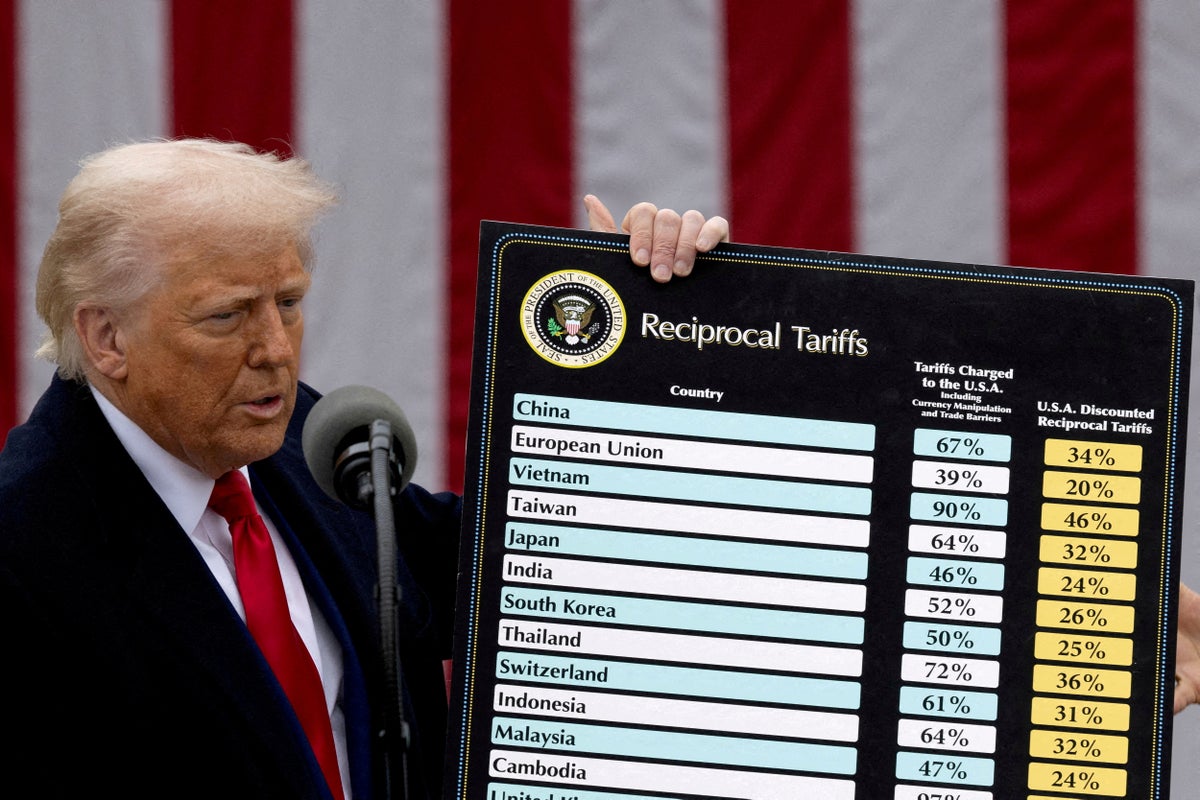
A federal appeals court has dealt a stunning blow to Donald Trump’s sweeping tariff agenda, upholding an earlier ruling that found most of the president’s global levies were illegally imposed.
The unsigned opinion released on Friday by the full U.S. Court of Appeals for the Federal Circuit states that the Carter-era International Emergency Economic Powers Act — the law Trump has repeatedly invoked when imposing sweeping import taxes on goods from most of the world — grants him “significant authority” to “undertake a number of actions in response to a declared national emergency.
But the appeals court, which specializes in cases dealing in specific and obscure areas of law such as international trade and patent law, found that “the power to impose tariffs, duties, or the like, or the power to tax” is not included in the 1977 law Trump has relied on.
The anticipated decision from the appellate court largely upholds an earlier ruling from a three-judge panel on the New York-based U.S. Court of International Trade, which found in May that Trump had wrongfully invoked the emergency law to impose the tariffs.
They unanimously agreed that IEEPA, which Trump invoked when he rolled out his Liberation Day agenda at an event in the White House Rose Garden on April 2, “neither mentions tariffs (or any of its synonyms) nor has procedural safeguards that contain clear limits on the president’s power to impose tariffs,” the appellate judges noted.
“The government has not pointed to any statute or judicial decision that has construed the power to regulate as including the authority to impose tariffs without the statute also including a specific provision in the statute authorizing tariffs,” they said.
Justice Department attorneys had argued that Trump’s use of IEEPA to impose import taxes was part of the president’s authority to conduct foreign policy and therefore not reviewable by courts.
But the judges rejected that claim, writing that they were “unpersuaded” by such arguments.
“While the president of course has independent constitutional authority in these spheres, the power of the purse (including the power to tax) belongs to Congress,” the judges wrote.
They added later that IEEPA “did not give the president wide-ranging authority to impose tariffs,” they said.
A White House spokesperson, Kush Desai, said in a statement that Trump had “lawfully exercised the tariff powers granted to him by Congress to defend our national and economic security from foreign threats” and stressed that the tariffs remain in effect thanks to the court’s decision to send the case back to the Court for International Trade to determine what manner of relief would be appropriate given the Supreme Court’s ban on universal injunctions.
“We look forward to ultimate victory on this matter,” he added.
Trump himself took to Truth Social to attack the ruling by accusing the court of being “highly partisan” and claiming that the panel had “incorrectly said that our Tariffs should be removed.”
“If these Tariffs ever went away, it would be a total disaster for the Country. It would make us financially weak, and we have to be strong … if allowed to stand, this Decision would literally destroy the United States of America,” he said.
The president predicted that the Supreme Court would allow his signature policy to stand and vowed to continue taxing Americans’ imports “to the benefit of our Nation, and Make America Rich, Strong, and Powerful Again!”
This is a developing story
